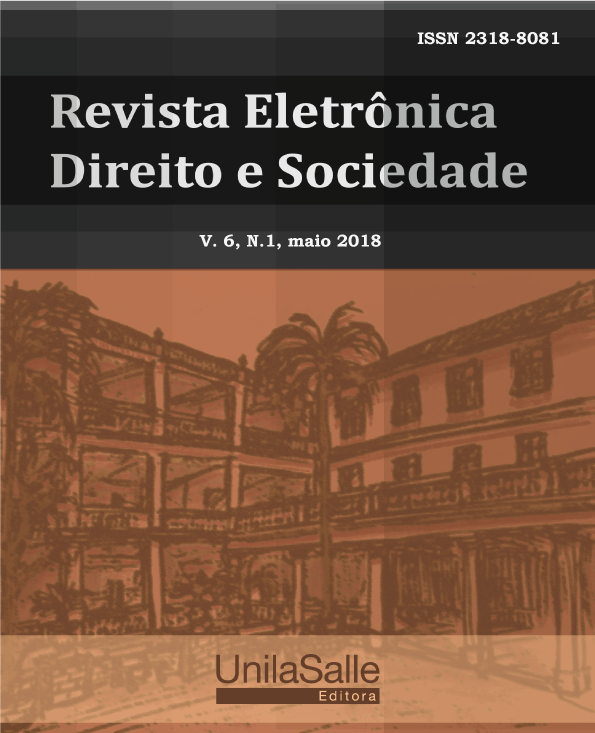Statutory Reversal as a Possible Dialectic Interpretation of Constitutions
DOI:
https://doi.org/10.18316/redes.v6i1.3679Keywords:
Judicial Activism, Constitutional Dialogues, Statutory Reversal, Judicial Review.Abstract
From the recognition of the universality of Human Rights, the insertion of norms of a material nature in the world constitutions and the creation of constitutional courts to control the performance of the Executive and Legislative powers, the Western countries have been experiencing a growing activism of these cuts and an active participation of the Judiciary in the attribution of meaning to contemporary constitutions. This phenomenon, made possible by the authorization of the judicial review, is defended by the constitutionalists who understand the irreversibility of the judicialization and the relevance of the jurisdictional role for the realization of fundamental rights, but criticized by those who fear that the excess of power in the hands of the judges violates precepts Of Western democracy and lead to judicial supremacy. The jurisdictional action for the interpretation of the Constitution makes possible the dialogue between powers so that the meaning of the constitutional norm is more in keeping with popular opinion and with the guarantee of positive fundamental rights - which is also the will of the people. As a feasibility of this dialogue, the statutory reversal is one of the most expressive forms of dialogue between the powers, once representing the legislative overcoming of judicial decisions. In this sense, it should be a modality of constitutional dialogue in which the representative power finds ways of telling the Judiciary that its decision of invalidity is outdated or in disagreement with popular opinion, which could lead the judges to a review of their own Understanding of constitutional interpretation.
Downloads
Published
Issue
Section
License
Authors who submit their manuscripts for publication in the “REDES” Magazine agree to the following terms:
The authors claim to be aware that they retain copyright by giving “REDES” the right to publish.
The authors declare to be aware that the work submitted will be licensed under the Creative Commons Non-Commercial Attribution License which allows article sharing with acknowledgment of authorship and publication in this journal.
The authors declare to be aware that by virtue of the articles published in this journal have free public access.
The authors declare, under the penalty of the law, that the text is unpublished and original and that they are aware that plagiarism has been identified, plagiarized authors will be informed - willingly, to take legal action in the civil and criminal sphere - and, plagiarists will have their access to the magazine blocked.
The authors state that - in case of co-authoring - all contributed significantly to the research.
Authors are obliged to provide retractions and (or) corrections of errors in case of detection.
The authors are obliged not to publish the text submitted to “REDES” in another electronic journal (or not).
The Electronic Journal Law and Society - REDES - is licensed under a Creative Commons License. Attribution-NonCommercial 4.0 International.Based on work available at "http://revistas.unilasalle.edu.br/index.php/redes/about/submissions#copyrightNotice".
Permissions in addition to those granted under this license may be available at http://creativecommons.org/.

